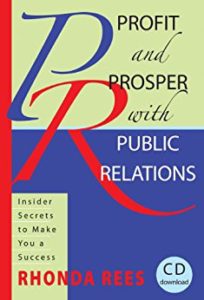 by Rhonda Rees
by Rhonda Rees
“Back before the Internet, we had a name for people who bought a single copy of our book and lent it to all their friends without charging; we called them librarians.” – Charles Stross, UK science fiction writer
Unfortunately, in 2017 this isn’t always the case. In today’s fast-paced world, with our instant communications, miracle devices, and user-friendly technologies, almost anything can be found with the simple press of a button or as fast as someone can “point and click.” This definitely has its advantages, and you may even say that in the past decade we’ve come a very long way, but there still can be a downside to all of this progress.
What I am referring to is a little-known subject that is having an impact on many unsuspecting authors and publishers – that of online book piracy. Many people are not aware of it until they discover it’s happening to them. This is really a modern-day crime, and one that doesn’t leave any fingerprints.
According to the Association of American Publishers, the industry as a whole has lost $80 to $100 million dollars to online piracy annually. From 2009 to 2013, the number of e-book Internet piracy alerts that the Authors Guild of America had received from their membership increased by over 300%. During 2014, that number doubled, and in 2017 so far, the figures are much higher.
By the end of 2015, there were nearly 2.2 billion visits to illegal book sites, according to the UK/US MUSO piracy solutions company, and a report by the International Business Times in the UK suggests that a fast-growing sector for illegal e-books is Google’s own Play app store, with e-book piracy proliferating through this medium, along with authorized copies of popular books such as Harry Potter, and the 50 Shades of Grey trilogy.
As an experienced author, publisher, or even as a novice just starting out, you probably have a good understanding and an even greater appreciation for what goes into producing a book. I’m sure that you’ve spent countless hours researching, preparing, writing, creating, and generating your finished work. All of the blood, sweat and tears, and the personal sacrifices that go along with this noble effort, are not to be taken lightly.
These days, it’s not merely enough to write your novel or non-fiction work, for as many of you know, it’s only after your book is completed that the hard part really begins.
You are now expected to promote your own wares. The PR, marketing, and social media is largely left up to you. But what do you do if in the middle of your book campaign you find yourself the victim of online piracy? What options does an author or publisher have, and more important, where do you turn to for help?
 This exact scenario happened to me. Right in the midst of publicizing my book, Profit and Prosper with Public Relations®: Insider Secrets to Make You a Success, I ran Google searches to see how the online sales were doing.
This exact scenario happened to me. Right in the midst of publicizing my book, Profit and Prosper with Public Relations®: Insider Secrets to Make You a Success, I ran Google searches to see how the online sales were doing.
That’s when it hit me that my book, along with thousands of others, was being offered as a FREE download without my knowledge or permission. My work was copyrighted, and the title trademarked and registered here in the United States. I thought that protected me.
Unfortunately, this wasn’t the case. Many of these unscrupulous companies offering books for free are located in foreign countries. The Netherlands, China, France, and Germany are some personal examples. One site claimed to have given away 600 copies of my book, and another one allegedly offered 1,500 copies, with still more to come.
Additionally, many of these bogus sites claim to be giving away free books, but they may actually be engaging in IP spoofing by making someone think they are going to one website, when they are actually being directed somewhere else. They might ask for credit card details, give users a computer virus or malware, or have people purchase their products in order to get their free books.
What can be done about this?
There is no simple or easy answer. The best advice I can give you is to run a WhoIs search, and plug in the offending website URL in order to find out who owns the domain name, where and when they were registered, and when their Internet address expires. Also, it is very important to locate the web hosting company of each site, so they can be sent a DMCA (Digital Millennium Copyright Act) takedown notice. IP Watchdog (online) provides a free sample letter. (Note the DMCA letter has to be worded very carefully, in an exact manner.) MUSO and other companies such as DMCA.com will send them out on your behalf.
After receiving your correctly worded DMCA takedown notice, the web hosting company is then obligated to notify their client (the culprits) within 24 hours to remove all of your information. You can then run a Google search again to make sure it’s gone. You need to do this with each illegal site. Try not to lose your patience while you do this. Just as soon as one website has deleted your details, another one can then pop up, in a whack-a-mole situation. Currently, there are laws in place that inadvertently protect these cyber criminals. Their web hosting companies are not at liberty to let authors and publishers know who they are, as personally frustrating as this may be.
I recommend that as an author or publisher you run regular Google and/or Bing searches. You can plug in the following information: the name of your book(s), the author’s name, and the words “free downloads” to see what comes up. Please remember to stay calm and know that you’re not alone.
As an experienced public relations person, I have put my skills to the test. For the past three years I have been actively involved in a PSA awareness campaign to help shed light on this growing but largely unknown problem.
I have teamed up with organizations and businesses such as the United States Chamber of Commerce Global IP Center in Washington, D.C., the Authors Guild of America, the Copyright Clearance Center, the Piracy Trace Business, MUSO, the Counterfeit Report Company, the Independent Book Publishers Association, the Book Publicists of Southern California, and WPN.
At the end of 2015, I was named the publicist of the year by the prestigious Bulldog Reporter publication for my efforts. Additionally, I have orchestrated the first-ever Check Your Books PR campaign during April to coincide with World Book and Copyright Day (April 23), and World IP Day (April 26). I have also sent regular press releases, and have participated in radio and TV interviews, given a webinar, and have used social media to help get the word out.
If you’d like further information about online book piracy, want to participate in the Check Your Books PR campaign this year, or would like to join the cause, please feel free to contact me through my website at http://www.rhondareespr.com, on Facebook, on
LinkedIn, or on Twitter. Together, I know that we can make a difference in the ongoing fight against the online piracy of books.
Rhonda Rees is a PR expert, author, and advocate for online book piracy awareness. She was named an IRWIN (Industry Recognition for Writers in the News) award winner and publicist of the year by the Bulldog Reporter publication. Her book, Profit and Prosper with Public Relations®: Insider Secrets to Make You a Success, has been honored with the USA Best Books finalist award, the Axiom Business Books bronze medal, and the Next Generation Indie Book

Pingback: Rhonda Rees Award-Winning PR Consultant, Author and Advocate Announces Important New Developments During the Month of April - Press Release Rocket
Pingback: Rhonda Rees Award-Winning PR Consultant, Author and Advocate Announces… – All-Latest-News
Pingback: Rhonda Rees Award-Winning PR Consultant, Author and Advocate Announces... - Career Square